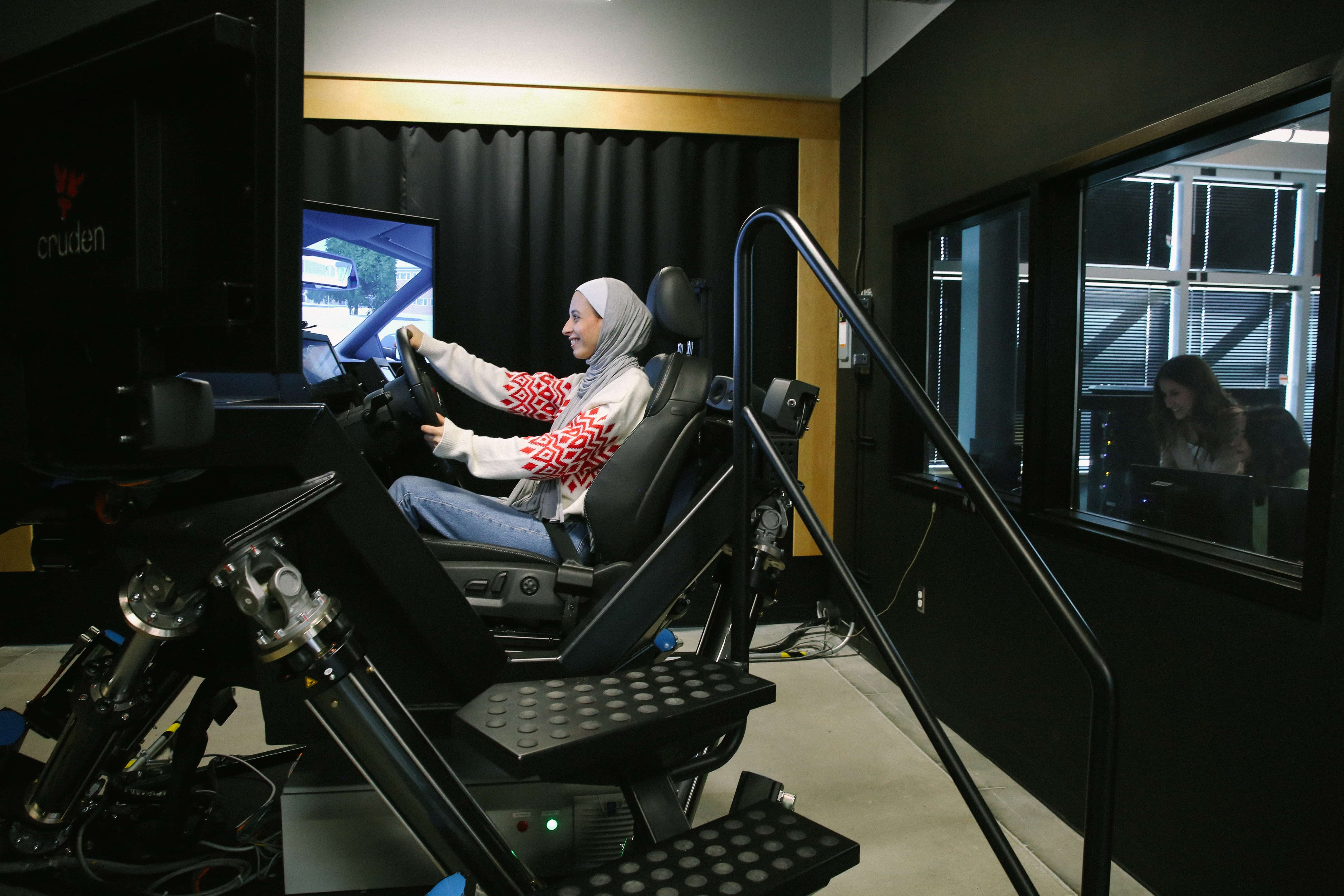Institute for Advanced Vehicle Systems
Mission & Vision
The College of Engineering and Computer Science (CECS) at the University of Michigan-Dearborn established the Institute for Advanced Vehicle Systems (IAVS) to conduct applied research in the design, development, and manufacturing of advanced vehicle systems. The Institute focuses on body, interior, chassis, and electrical/electronic systems design and engineering, as well as the creation of innovative design, engineering, and manufacturing processes and methods.
The Prechter family's World Heritage Foundation has supported programs in CECS for over a decade. Heinz Prechter, philanthropist and founder of ASC, was an exceptional friend of the college. He provided insight, guidance, and support that helped shape the direction of the school. His vision for CECS to become a leader in creating new systems for the manufacturing and automotive industries became a reality with the creation of IAVS. Since then, IAVS has received additional funding and support from leading companies and institutions, including DaimlerChrysler, Ford, General Motors, ArvinMeritor, BorgWarner, Visteon, Lear, and the American Plastics Council.





Driving Simulator Lab
 The Driving Simulator Lab at the University of Michigan-Dearborn houses a state-of-the-art motion-based driving simulator designed to support faculty and students in advanced research and education. The lab focuses on automotive systems, human factors and ergonomics, human-machine interaction, and driver behavioral studies. Located in the IAVS in the College of Engineering and Computer Science, the DSL is a hub for innovation and learning.
The Driving Simulator Lab at the University of Michigan-Dearborn houses a state-of-the-art motion-based driving simulator designed to support faculty and students in advanced research and education. The lab focuses on automotive systems, human factors and ergonomics, human-machine interaction, and driver behavioral studies. Located in the IAVS in the College of Engineering and Computer Science, the DSL is a hub for innovation and learning.
The simulator features several key components: a driver occupant platform equipped with professional driving interface units, a glass cockpit, a center console touch screen, a high-end digital audio system with a sub-woofer and four satellite speakers, and a vibration actuator. It also includes a 6-DOF motion base, a control loading system for force feedback, a visual system with three displays and four Panthera simulation software fully integrated with the following application software:
- CARSIM: various vehicle dynamics models, including sedans and SUVs
- 3D Unity for operating 3D objects in the simulation
- SimSound for simulating noise and vibration
- iMotion: physiological sensors (heart signal (ECG) and skin conductance (GSR))
- Tobii eye tracker used to analyze the profile of driver’s attention
- Siemens PreScan/Aimsun for sensor modeling and generating various traffic scenarios and environments
Additionally, the lab offers a desktop simulator that can co-simulate with the main simulator in real time, enhancing on-road interactions and troubleshooting scenarios. The DSL is currently collaborating with Cruden to develop a realistic Detroit road network and traffic scenes for autonomous driving research.
To schedule a visit, please contact Monica Somand at somandm@umich.edu or Ian Beattie at ibeattie@umich.edu. For inquiries about research projects and teaching activities, reach out to Professor Yi Lu Murphey at yilu@umich.edu.
